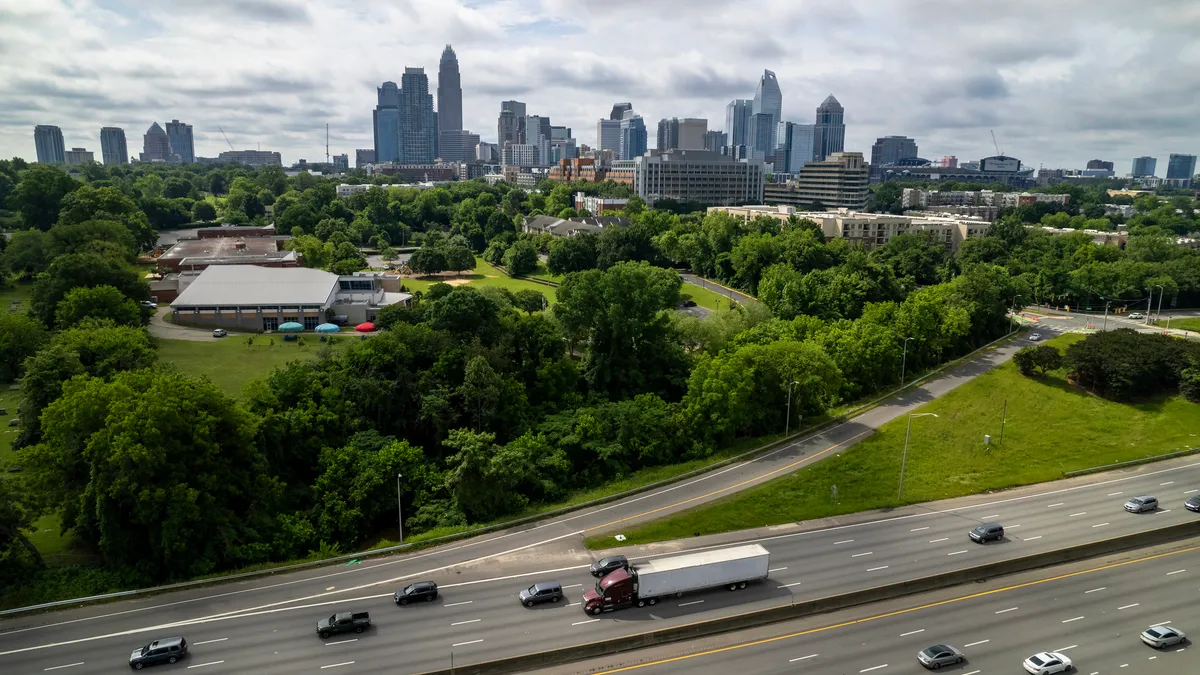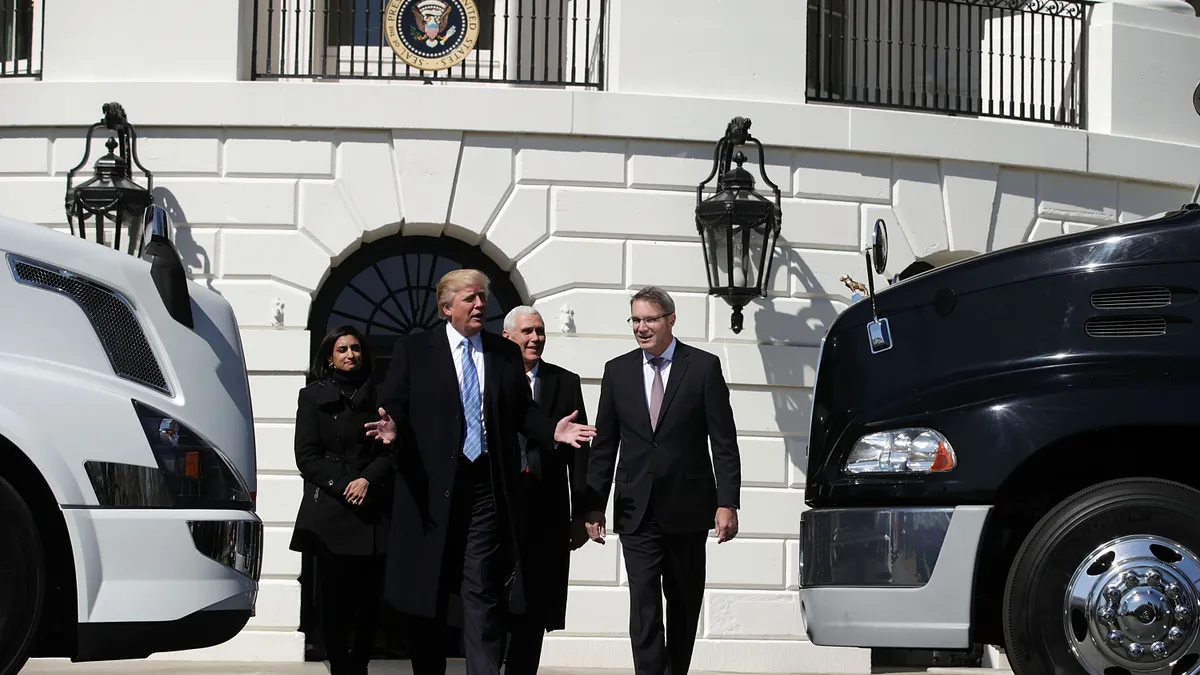K.L. Harring Transportation, based in Bethel, Pennsylvania, knows the exact locations of all its 90 trailers.
It also knows the tire pressure and temperature, refrigeration temperatures, when doors are open or closed, and detention time. And an employee can operate the trailer door locks remotely, said Keith Harring, owner and president.
Harring’s company uses smart-trailer technology from Thermo King. "We’ve used them for 35-40 years for our cold chain needs," Harring said.
From reefer to flatbed to dry van, the Internet of Things can make any trailer more intelligent. IoT technology is used to provide details about the health and status of the trailer and its cargo, said Jeremy Intal, production manager at Samsara, a connected-operations platform that sells a solution for smart trailers.
"Smart trailers use a system of onboard computers, sensors and IoT connections to collect real-time data directly from trailers," Intal said in an email. "This data can include information about GPS location, reefer conditions, trailer maintenance, tire pressure, battery levels and so much more."
Better than yard checks
The exact location of a trailer is certainly nice to know, said Gary Short, owner of Go-To Transport, headquartered in Bay City, Michigan. With 175 tractors and 600 trailers that haul freight to different states, being able to pinpoint where a trailer is works much better than asking a customer to do a yard check.
"Usually the intel we got with a yard check was two or three days old," Short said, "which didn’t do us much good."
Other benefits Intal described include:
- Streamlined workflows with partners: Fleets that rely on owner-operators to do a portion of their hauling can use smart-trailer technology to keep customers and employees in the loop.
- Properly utilized trailers: Firms can see how each of their trailers measures up against their potential and right-size the fleet, if necessary.
- Cut down on theft: Fleets can set up location-based alerts that send notifications when assets move.
- Automated inventory management: Trackers provide the ability to search for trailers by location, name of the asset or type of asset.
Although the prospects of what can be learned from an intelligent trailer seem limitless, the speed at which technology advances may leave some fleets in the lurch.
'Innovative dysfunction'
So many new "smart trailer" products are entering the market annually that understanding the specifications is currently in a state of "innovative dysfunction," said Charles Willmott, CEO of WillGo Transportation Consultants.
"There are far too many new smart trailer devices, and too many issues surrounding their sustainable benefits, for carriers to invest confidently in any one product or system," Willmott said.
That’s why Willmott collaborated with Paul Menig, CEO of Business Accelerants, in the fall of 2020 to create "Enhanced Safety, Maintainability and Readiness Through Technology," or eSMARTT. Willmott and Menig are working with the American Trucking Associations’ Technology and Maintenance Council to evaluate smart-trailer technology implementation and the experience of major trailer owners across the United States and Canada.
Willmott has already discovered some unique challenges with integrating smart-trailer technology. Technology moves at a breakneck pace, and trailers will last much longer than the technology. So, how does a trailer owner best manage three- to five-year smart technology on a 20- to 30-year asset?
"A good example is the 3G network that will shut off in February of 2022," Willmott said. "The logistical difficulties and the cost of replacing GPS telematic devices with newer 4G and 5G suitable devices is significant."
Another challenge to trucking companies’ enthusiastic adoption of this technology is the potential future impact on the cost and qualifications of their trailer maintenance programs, said Willmott. Carriers may need to hire or at least retrain their service technicians so they can handle smart trailers. That means these technicians must be compensated at a higher rate of pay than before.
Short said he has his own maintenance staff and isn’t concerned about that.
"We have had SkyBitz [technology] for five years now," said Short. "We figure about [3%-5%] of our units need to be reset or fixed in some way at any one time — which, honestly, based on my history with technology, I can live with that number."
Defining ROI
Fleets have different hot buttons and various ways to look at return on investment, said Willmott.
"Hardware costs — device, battery, installation and future maintenance — creates a complicated set of cost variables," Willmott said. "Also, fleets’ varying needs influence costs, so ROI is hard to predict."
Willmott forecast that fleets that adopt trailer technology will take a conservative approach. Before converting system-wide, they will want to see a short ROI payback.
"Fleets’ varying needs influence costs, so ROI is hard to predict."

Charles Willmott
CEO of WillGo Transportation Consultants
"I am a firm believer that the trailers of today and tomorrow will be intelligent and communicate with their masters about functionality," said Willmott. "Overall, we will be safer and more efficient and transparent."
In a case study detailed on the SkyBitz website, family-owned Legend Transportation adopted its trailer- and asset-monitoring platform, integrated that into the transportation management software and realized growth within 12 months. Legend decreased detention times, turn time and empty miles, while still maintaining a high level of customer service.
"It’s aimed at giving the fleet a holistic view of its operation, but it will take years to fully realize," Jeff Tucker, CEO of Tucker Company Worldwide, said of the "smart" concept. "However, whomever you are in transportation, you’re either on a march toward technology adoption and integration, using [artificial intelligence] and various automations, or you’re on the march to being out of business."




















